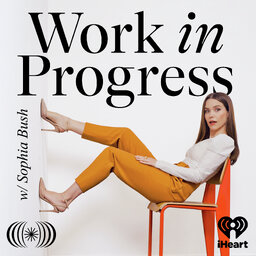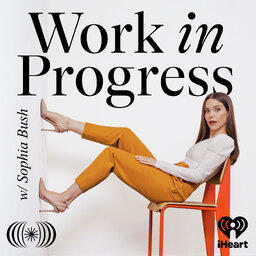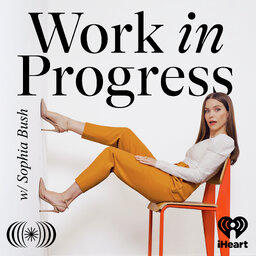Michael Moore is an Academy-Award winning filmmaker, best-selling author, and now podcast host. He joins Sophia on "Work In Progress" to talk about why he wanted to start his new show "Rumble," share his thoughts on the 2020 election (he believes four or five of the Democratic candidates could beat Trump) and he reflects on our gun violence epidemic and how it has progressed since "Bowling For Columbine." Executive Producers: Sophia Bush & Sim Sarna Supervising Producer: Allison Bresnick Associate Producer: Caitlin Lee Editors: Josh Windisch and Matt Sasaki Music written by Jack Garratt and produced by Mark Foster Artwork by Kimi Selfridge. This show is brought to you by Brilliant Anatomy.
In 1 playlist(s)
Work in Progress with Sophia Bush
Work in Progress with Sophia Bush features frank, funny, personal, professional, and sometimes even …Social links
Follow podcast
Recent clips

Work in Progress: Jeannie Mai
55:24

Work in Progress: Mika Brzezinski
1:01:11

Work In Progress: Sophia answers fan questions
23:52
 Work in Progress with Sophia Bush
Work in Progress with Sophia Bush